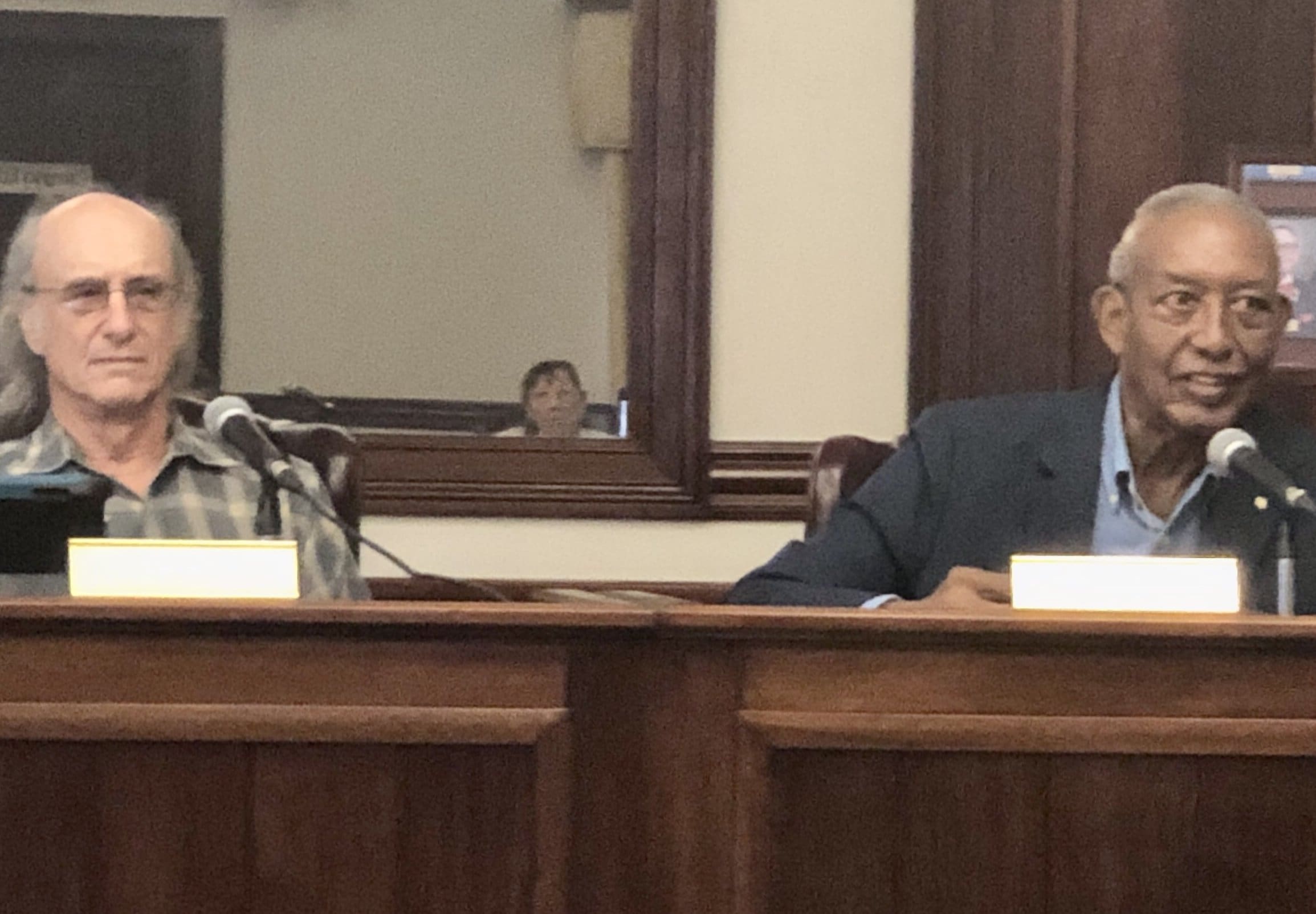
Close to a dozen residents from St. Thomas and St. John joined members of the Sixth Constitutional Convention Saturday as one of its committees held a public meeting in Cruz Bay. The Standing Committee on Government Structure convened virtually and in person at the Cleone Creque Legislative Hall to ask for public input.
They were welcomed by a diverse group of individuals, spanning all ages, including nonprofit leaders, concerned citizens, and academics. The purpose of the meeting, as shared with committee Chair Rupert Ross, was to review the work completed by the Fifth Constitutional Convention. This included discussions on the principles of government; the structure and functions of the executive, legislative, and judicial branches; the organization of local government; proposed amendments to the section on government structure; and steps for implementing any changes if the U.S. Congress approves this version of the Virgin Islands Constitution.
Ross said the session was the committee’s second public meeting. “We want to be successful in this process,” he said, adding his thanks for the input provided by testifiers.
Much of the testimony focused on context — why the territory needed a constitution at this time, and how putting a founding document in place would serve a people still grappling with questions about self-determination.
“We are essentially placing constitutional development before political status,” said consultant and nonprofit leader Hadiya Sewer. Convention President Usie Richards agreed in part, but only up to a point.
Richards said he agreed that addressing status should come before drafting a constitution, but to him, the choice came down to standing on the sidelines or setting his views aside and getting involved in the process.
Former Senator and current convention member Lillianna Belardo De O’Neal challenged the speaker’s remarks that drafting a constitution should be paused in order to address the status question.
After five attempts, Belardo said, drafting and passing a V.I. Constitution should be a priority. “How much longer can you wait? We’ve had five already … When the people elect us, they’re telling us we are capable, and experienced, and knowledgeable to put out a document that the people should accept,” she said.

Some testifiers spoke directly to the government structure section of the document. Love City Strong Executive Director Meaghan Enright said the local government should make it easier for everyday citizens to seek assistance.
“I do agree that it may be a valuable experience to make island administrators an elected position, however I also recognize the need for the governor’s office to have representation on each island. So, I think that having municipal government, or a town council, or somebody that is elected at a hyperlocal level could make a huge difference in the ability of the government to allow the community to feel heard on a day-to-day basis,” Enright said.
Virtual testifier J.H. Snider said he’d like to see the committee review the legislative transparency provision, adding that information about bills up for consideration appearing on the Legislature’s website is often unclear in their intent.
Coral Bay resident Pam Gaffin voiced support for electing a lawmaker to represent St. John. Under the current local structure of having St. John and St. Thomas together in one district, “We have somebody on St. Thomas who makes decisions for St. John,” Gaffin said.
Architect Kurt Marsh Jr. asked committee members to think about equitable representation when crafting the section on local government. Because roughly two-thirds of St. John exists as a national park, residents living on the remaining third pay higher taxes proportionately, he said.
“Approximately 30 percent of St. John contributes approximately 25 percent to the treasury of the V.I. government,” Marsh said. “If we ever get to see the stick I’m sure we get the short end.”
Committee member David Silverman, a resident of Coral Bay, asked testifiers for more details. “Regarding municipal government, what encourages you that it can be done or encourages you that it can’t be done?” he asked.
Ross said it is the intent of the convention leadership to make public engagement a greater part of their process this time around. He also expressed encouragement during the Saturday session, saying the first meeting held on St. Croix attracted two participants.
The committee chair said he was hoping to see a turnout similar to the St. John session when the committee holds its upcoming hearing on St. Thomas. “In addition to writing a document, we have a serious responsibility of reaching out to the people,” he said.
Convention Secretary Imani Daniel thanked those who shared their thoughts and those who came to observe at the Cruz Bay hearing.


